We’ve always been inspired by creative thought and extraordinary quality, however they may be expressed. Join us as we explore this inspiration!
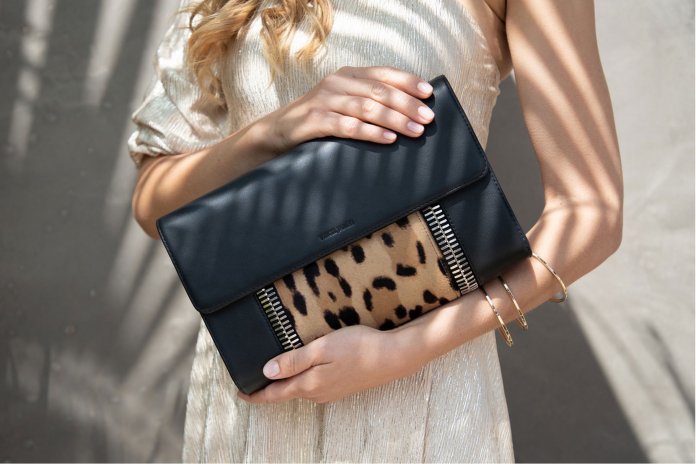
If you haven’t experienced rush-hour traffic in a big city, you're definitley doing something right. I was driving to LA the other morning. It was ridiculously early, which is the only time you won’t go crazy watching a car bumper for three hours. In the background, the radio was on and, without exaggeration, every minute of content was matched by another minute of ads. Welcome to stress-free living in Southern California!
I was struck by the fact that all of the ads, and I heard plenty, promoted excellence in some way. The perfect mattress (for the best sleep). The most natural hair coloring system. The best-fitting underwear (that will change your life forever). The guaranteed, eat-whenever-you-want, weight loss program. The fastest, lowest-rate, and therefore best, mortgage. And my favorite, new scientifically engineered, health-conscious, organic kitty litter.
All this excellence got me thinking about quality, and that got me thinking about sustainability. Clearly, the marketing experts think everyone wants excellence, which is usually associated with the best quality, or the longest usable life (one way to think about sustainability). The very word, quality, defines a measure of what’s best...something most everyone wants. And, how could anyone deny the value of sustainability, particularly if it will help save Mother Earth.
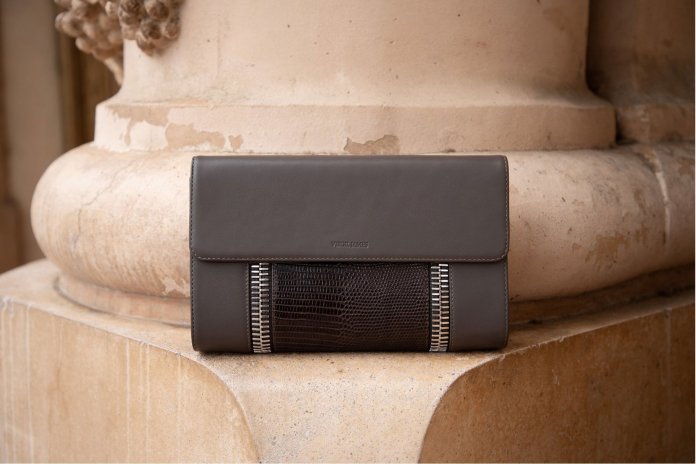
The Santa Fe Collection Brown Lizard Clutch combines exceptional materials and uncompromising craftsmanship.
For a lot of us growing up, quality was an aspirational by-product of wanting the best. Early on I knew enough to appreciate quality. It wasn’t that I was surrounded by it (I wasn’t.) as much as I saw that the absence of quality had consequences. Poor tools mean a lot more work and probably a mistake that eventually cost more than a better tool. Cheap clothing didn’t last. Inexpensive cars broke down. It didn’t take a huge leap to also understand that good quality, and the promise of long-term use, was its own source of value and sustainability.
My early experiences with exceptional quality confirmed that the best almost always worked better and lasted longer - outcomes that anyone should like. I can still remember helping my dad build a deck one summer. The advantages of quality applied to everything - tools, lumber, paint, and, of course, our own labor. All I can say is a lot of lessons were learned during that "fun" event.
Of course, great quality is not free. Excellence always came at a cost. Better materials and better craftsmanship were usually the hallmarks of "best." As my appreciation for quality developed, it became apparent that wanting the best had to be balanced by what I could afford. And, for most people, that means identifying what delivers the absolute best outcome for what you’re willing or able to pay.
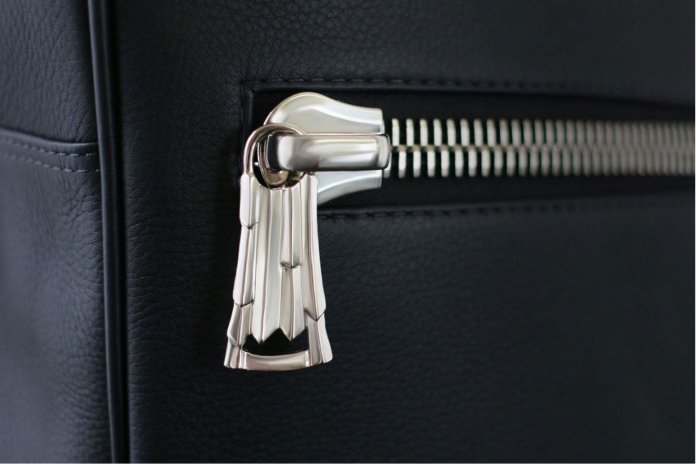
This handmade bonze zipper pull, finished in brushed nickel, is quality defined.
Over time, I learned that quality compromises are often short-term bargains with a disproportionate long-term cost. Take something as simple as a pair of shoes, for example. Inexpensive shoes are exactly that because they use cheaper materials, and less time-consuming construction methods. It’s no surprise then that inexpensive shoes wear out faster, are often uncomfortable, and seldom justify the cost of repair.
Higher cost doesn’t always translate to higher quality but it’s a reasonable proxy, all things considered. Take a women’s handbag. Style aside, the best quality bags last longer because they use better materials and construction methods. Details – the lining, padding, thread, adhesives, fasteners, and how these materials are used to make a bag – matter. And the better outcome means your bag will last for more than a year or two, survive the inevitable liquid assault, and look new when it isn’t.
Whether intended or not, the quest for exceptional quality provides a pathway to sustainability. A short product life means replacement sooner than later (cheap tires are a vivid example). A long product life, by contrast, results is fewer replacements and less waste.
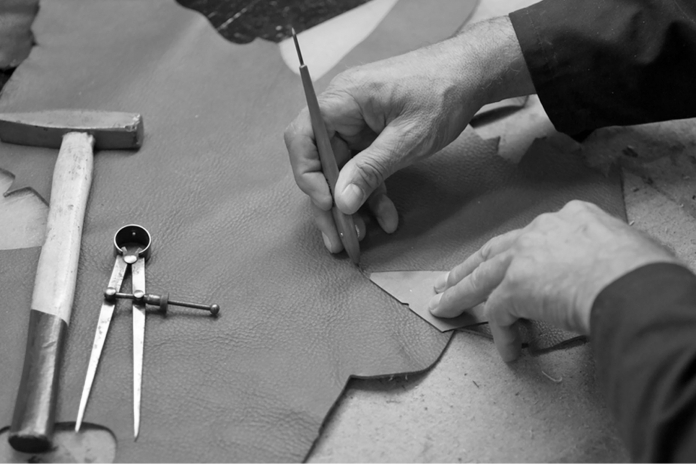
Uncompromising craftsmanship has always been a recipe for excellence.
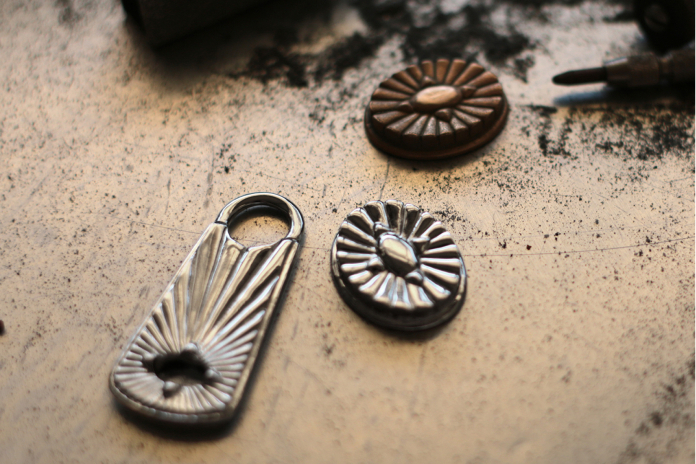
The better the raw materials - bronze, in this case - the more sustainable the product.
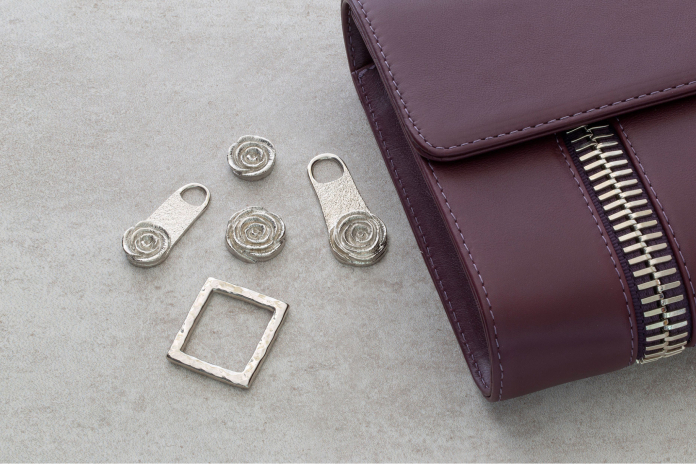
Artisanal craftsmanship and components for Virgil James connoisseurs.
At Virgil James, one of the core values is a commitment to the best possible quality we can produce. Of course this is personal, but it also makes good business sense. Quality that creates longevity also has a way of influencing the notion of “classics”. Products of exceptional quality simply last longer and, as a result, defy quickly changing styles.
We're convinced that artisanal quality is the ultimate form of sustainability. Throw-away fashion and excess consumption are losing their appeal. Increasingly, sustainable goods get our attention. And what better way to adapt than to purchase things that give you pleasure for an extended period. Quality is an investment in durability and performance. The rewards are revealed over time. Striving to create an exceptional experience with quality is part of the mindset that guides Virgil James.
Our followers get this. Even when they can’t tell you exactly what makes for higher quality, they seek the experience that comes from owning something exceptional that will be used for years. They appreciate the commitment that’s required to achieve an absence of unintended flaws. They relish the experience of timeless durability and performance. And most of all, they love the fact that all this can be presented with a sense of style. What’s not to like...when quality comes first!